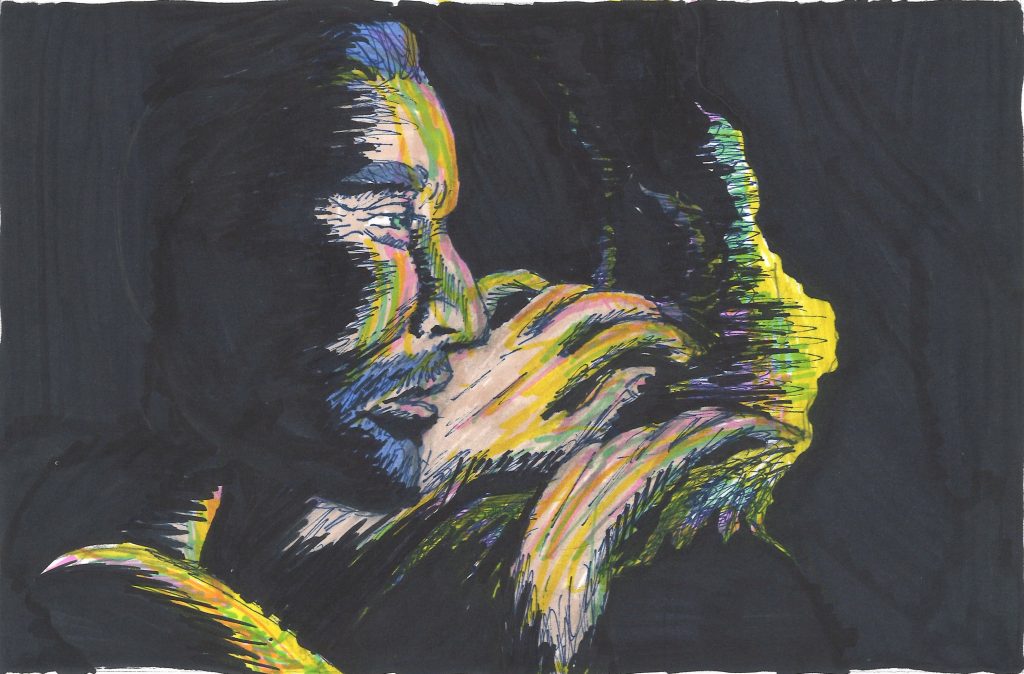

Mental illness is often cited as one of the driving factors behind the growing homeless population in cities such as Berkeley and Oakland. A lack of resources for the mentally ill has led many people to the streets. Others, such as myself, landed on the streets as the result of an unanticipated, first-time mental health breakdown. What is not considered as often, however, is the fact that the very experience of homelessness, with all its injurious components, can easily drive a formerly sane person to the brink of insanity. I know this to be true, for a number of reasons.
First of all, it happened to me. Though it is true that I became homeless as the result of a breakdown at the age of 51, the ongoing conditions of homeless- ness drastically exacerbated the mental health issues I was facing. To the contrary, they caused considerable damage to my constitution. Sleep deprivation, malnutrition, and forced over-exercise kept me in a continual state of shock. Add to that the lingering trauma effected by specific violations, and the result is what we call cognitive dissonance. My psyche felt as though it had been split into two. Half of me still clung to the fading memories of a former humanity—a humanity I never questioned when I was a complacent, overweight music teacher, driving a Corolla, making $50,000 a year. The other half began to believe that I was truly the piece of dog poop I was often considered to be, as people stepped over and around me whilst I slept, as though afraid to get my scent on their shoes.
As soon as I got inside my own apartment, the kinds of mental incapacitation that had plagued me as a homeless man diminished dramatically, and in some cases, immediately. I had been expecting to need all kinds of medical and psychological help to get me back on the same page as “mainstream” society. But in the first week after having found palatable residence, I noticed numerous signs of vastly improved mental health without my having to do anything at all to attain it. In clear layman’s terms, let me cite but a few:
1. During the first three nights of sleeping alone in a locked room, I dreamed every night, which means I must have been achieving REM sleep—something that never happened when I was homeless. After three days of this, I noticed that I was thinking much more clearly than before.
2. My level of anxiety was reduced drastically. I no longer felt as though I were in “shock” or“on guard.” The previous sense of “sleeping with one eye open” was completely removed. Obviously, it was a lot less likely under such conditions I would be awakened by an assailant, let alone a cop.
3. The overwhelming sense of despair that had engulfed me during my homelessness was immediate- ly lifted. With it, anything that could be construed to be “clinical depression” no longer applied. Whereas I had previously been very fatalistic, believing I would probably be homeless for the rest of my life, I now found myself upbeat and optimistic about my future.
After twelve years on the streets where hatred ruled, my life had just begun.
After about a month of consistently living in- doors, a friend of mine complimented me on the phone: “You know, Andy, you sound just like a normal person now!” (Not sure what I sounded like before, but apparently it was pretty abnormal).
If all of this was my experience in the very first month, can you imagine what it’s like nearly three years later? For almost three years now, I’ve been getting REM sleep on a regular basis, after being sleep-deprived for years. I’ve been cooking my own food, taking showers in my own bathroom, and lacing up my shoes when I want to get moving—not when I’m told to “move on.”
If I walk, if I run, I am the one who determines the pathways that I will traverse. I am the one who decides how many miles I need to put in each day. When I eat, it is I who decides what I am to eat.
Many of the things I did when I was homeless were determined by conditions beyond my control. The contrast between the empowerment of my present-day world and the powerlessness of my previous life is enough alone to lay waste to the remnants of a psychologically paralyzed existence.
To whatever extent my mental health worsened over all that time on the streets, to that same extent has it been increasingly alleviated, the longer I live indoors. At the age of 66, many of my peers are retiring from jobs that they probably hated. They act as though they don’t know what to do with themselves. They act as though they’re headed for the grave. After twelve years on the streets where hatred ruled, my life has just begun.
Andy Pope is a freelance writer who lives in the Pacific Northwest. He is the author of Eden in Babylon, a musical about youth homelessness in urban America.
